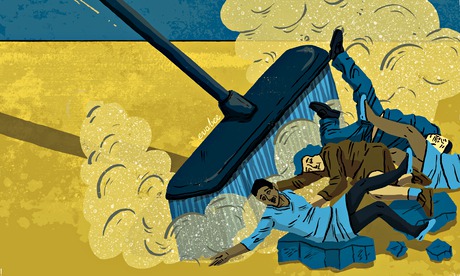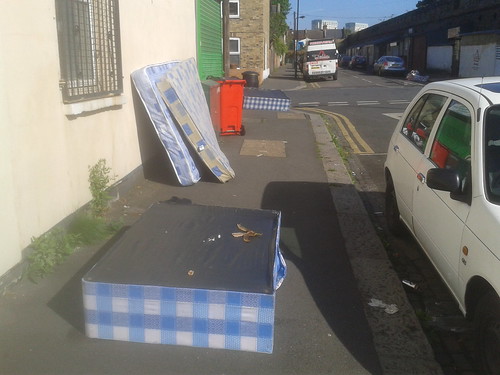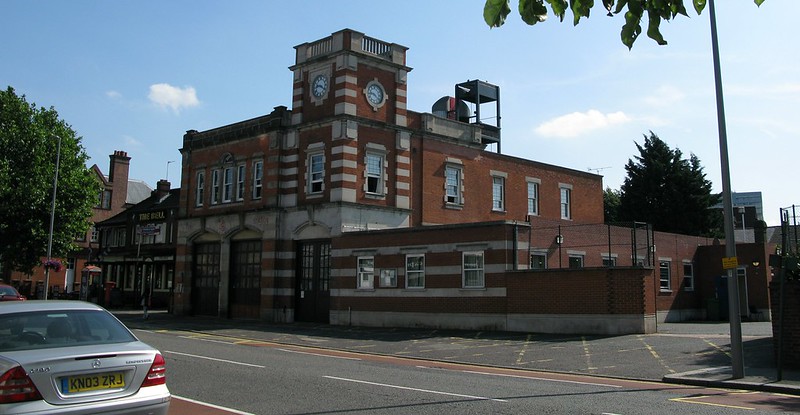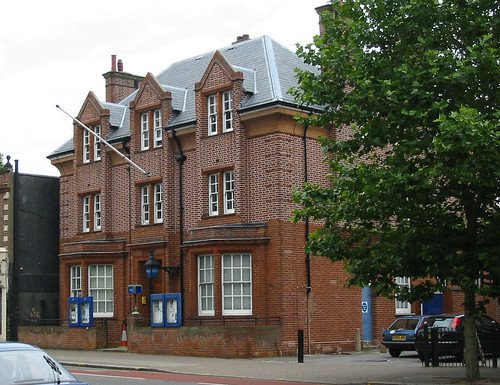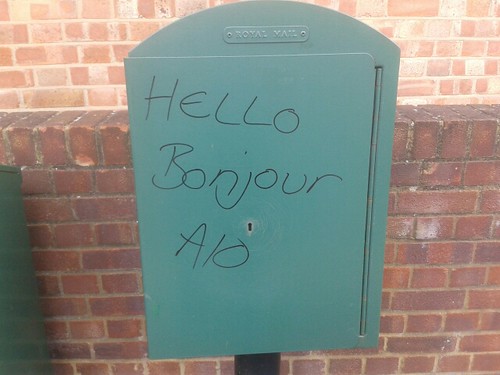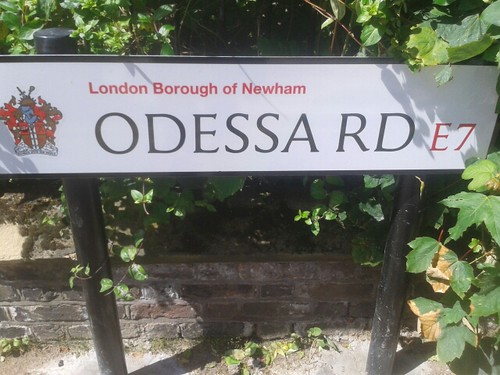What is powerlessness? Try this for a definition: you stand to lose the home where you’ve lived for more than 20 years and raised two boys. And all your neighbours stand to lose theirs. None of you have any say in the matter. Play whatever card you like – loud protest, sound reason, an artillery of facts – you can’t change what will happen to your own lives.
Imagine that, and you have some idea of what Sonia Mckenzie is going through. In one of the most powerful societies in human history – armed to the teeth and richer than ever before – she apparently counts for nothing. No one will listen to her, or the 230-odd neighbouring households who face being wrenched from their families and friends. All their arguments are swallowed up by silence. And the only reason I can come up with for why that might be is that they’ve committed the cardinal sin of being poor in a rich city.
Sonia lives in one of the most famous landmarks in east London. The Fred Wigg and John Walsh towers are the first things you see getting off the train at Leytonstone High Road station; they hulk over every conversation on the surrounding streets and the football matches on Wanstead Flats. Since completion in the 1960s, they’ve provided affordable council homes with secure tenancies to thousands of families. Named after two local councillors, they are a testament in bricks and mortar to a time when the public sector felt more of a responsibility to the people it was meant to protect, and exercised it too.
And so they must go. Last month, Waltham Forest council agreed on a plan to strip back the two high-rises to their concrete shells, rebuild the flats, and in effect flog off one of the towers to the private sector. In between Fred and John, it will put up a third block.
What’s this long and costly job (£44m is the starting estimate) in aid of? Not to build more council homes. Amid London’s worst housing crisis since the aftermath of the second world war, local politicians plan to cut the number of council flats on the site from 225 to 160. You can guess what the rest will be: luxury flats sold as investments to foreign investors and buy-to-letters for half a million pounds a pop, and some “affordable” units to serve as PR mitigation. This is in a borough where 20,000 households are waiting for a council property.
Nor is this a choice being forced on the Labour-run council because of spending cuts and tough choices, and all that blah. By its own estimates, the project will blow about £14m of public money. Councillors admit it would be far easier and cheaper to repair and refurbish the blocks. It would also leave the borough with more social housing, and Sonia and her neighbours in peace.
Here, then, is a scheme that is expensive, illogical and unpopular. How does a local government push it through? By cheating. A strong term, but I challenge you to follow the sequence and not use it too.
First, council staff outlined the options to a few handfuls of households, without giving any detailed written explanations. Sonia remembers how one of the meetings was combined with a mini-funfair, where children from the estate were given candy floss. Then last summer officials produced a scientific-looking survey of residents, to capture how they felt about the proposed “improvements”, though there were still no details.
When residents finally found out what the council’s proposals would mean for them, they kicked off. A petition went round the estate, rejecting the grand scheme and calling for cheaper and less intrusive rebuilding: 60% of the residents signed up. Then came a November public meeting attended by more than a hundred angry people, at which council representatives were shouted down, and residents organised an impromptu vote against the council proposals. They begged for assistance from their Labour MP and their Labour councillors. No one helped.
So: a council decides to play at speculative property development (and local council taxpayers should pray that London’s housing bubble doesn’t pop over the next five years). It keeps residents in the dark over what its plans mean. And in the face of the eventual and inevitable protest, it pretends they aren’t happening, referring to “a handful” of malcontents. The easiest way to prove that is by offering residents a vote, as Westminster council did recently with one of its schemes. Fat chance of that happening here.
Just underneath the municipal formalities runs a thick vein of contempt from the representatives for the people they are meant to represent – and from a Labour party machine to what was once its core vote.
“The council is treating us worse than something stuck on their shoe,” says Sonia. And although she’s lived in the area her entire life, she knows that she and her son – now finishing off his A-levels – have become second-class citizens. They are reminders of Waltham Forest’s past as one of the most deprived boroughs in all of England.
Thanks to the inflation in the capital’s house prices, the area has recently become home to a new group of the relatively well-to-do. Having tasted gentrification, local politicians want more. “The Council wants to make the borough a place where high- and middle-income people choose to live and can afford,” reads Waltham Forest’s core strategy.
What they want to do with low-income people doesn’t need mission statements. Earlier this year the council tried to shift a soup kitchen run by a Christian charity out of the town centre, where it had been for 25 years, to an industrial estate in a layby off a dual carriageway. The soup kitchen and the poor people it attracted got in the way of the council’s “growth strategy”. Only the intervention of a judge forced a retreat.
In the run-up to what’s likely to be the tightest general election in years, both politicians and commentators are already bemoaning British voters: they don’t know what they want, they’re incoherent, they’re apathetic. But Sonia in Waltham Forest can tell you what a nonsense those charges are. If politicians can strip a part of the electorate of its voice, pretend to consult when really they mean boss about, and then ignore the comeback, they really mustn’t be surprised when voters forgo the ballot box for simmering resentment.
 ving London’s environment for everyone, building more homes and making fares much fairer are at the centre of a radical set of proposals put forward by the Liberal Democrat London Assembly Group in their amendment to the Mayor’s budget.
ving London’s environment for everyone, building more homes and making fares much fairer are at the centre of a radical set of proposals put forward by the Liberal Democrat London Assembly Group in their amendment to the Mayor’s budget.

